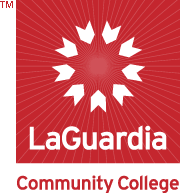Document Type
Assignment
Publication Date
2-2025
Abstract
MAT 115 College Algebra & Trigonometry/Precalculus
Project Title: Maximizing the Volume of a Cardboard Box to Save Trees– An Application of Polynomial Functions to Address Global Issues
Reflective Narrative:
This project was inspired by my participation in the "Designing and Implementation of STEM Co-Curricular Activities" CTL seminar in Spring 2023. I am grateful to Drs. Bukurie Gjoci, Daniel Gertner, Ingrid Veras, and Midas Tsai, along with fellow participants, for their invaluable feedback that helped shape its development. The project was implemented in two College Algebra and Trigonometry courses. I participated in two seminars to further develop this project. The Community Based Learning CTL seminar to engage students with experiential learning in mathematics and the Global Learning Workshop held by the Assessment Leadership Team where feedback from facilitators Drs. Daniel Boudon, Maria Savva, Monika Ekiert, and Andrea Irias has further enriched the project to engage students in Global Learning for college-wide Gen Ed assessment.
This Experiential Learning Project integrates mathematics and global learning by tasking students with maximizing the volume of a box from a given piece of cardboard to emphasize environmental and sustainability issues. Students apply algebra, polynomial functions, and optimization techniques to solve real-world problems and reflect on the environmental impact of cardboard production, such as deforestation and climate change. The activity promotes inquiry, creativity, and collaboration through hands-on construction, video creation, and presentations, fostering critical thinking and global learning. By linking mathematical problem-solving with sustainability, the project encourages students to analyze evidence, synthesize information, and use mathematical models to address resource conservation and the societal implications of cardboard use.
This project aligns with the MAT 115 Course Learning Goals and Student Learning Objectives by engaging students in the application of polynomial functions to maximize box volume, a real-life problem that demonstrates the role of mathematical modeling. Through this task, students investigate verbal, numerical, graphical, and symbolic representations of functions while visualizing and optimizing solutions, meeting the instructional objective of exploring diverse function representations. The activity also fosters critical analysis of polynomial models, both algebraically and graphically, aligning with the goal of analyzing linear, power, and exponential models. By converting function representations and deriving solutions within the project context, students achieve the learning outcomes of translating between representations and applying mathematical methods to address practical and globally relevant challenges.
LaGuardia’s Core Competencies and Communication Abilities
This Experiential Learning Project was designed to also align with some of LaGuardia’s Core Competencies and abilities particularly Global Learning, Inquiry and Problem-Solving, and Written Communication, making it an effective tool for both academic and professional skill-building. Global Learning is engaged by encouraging students to approach environmental issues from multiple perspectives, fostering discussions on sustainability, ethical action, and the benefits of the Trillion Trees Act. In addressing these global challenges, students are encouraged to engage with issues of diversity, identity, and power through the lens of environmental responsibility. While learning about global issues, students are also engaged in Inquiry and Problem solving by being tasked with solving a problem that requires them to identify, analyze, and apply mathematical models to address real-world challenges in sustainability and resource optimization. The written reflection and report elements develop students' Written Communication skills by requiring them to articulate their findings clearly and cohesively, combining appropriate vocabulary, grammatical proficiency, and a well-organized presentation of their conclusions.
The project is expected to take 4-5 hours (2 in-class and 3 hours of individual work outside the classroom) and it is suggested to be about 15% of the students' final grade. Due to the experiential learning approach, students in my classes demonstrated a higher level of conceptual understanding. College Algebra & Trigonometry and Precalculus courses are taken by students from various disciplines. The students participating in the above project are primarily from Engineering, Computer Science, Business Administration, Liberal Arts Mathematics, Biology, Science, Pre-Health Sciences, and more.
This project is also suitable for LaGuardia’s Humanitarian Initiative as it aligns with the United Nations Sustainable Development Goals (UN SDGs), particularly Goal 13: Climate Action, fostering critical thinking and global awareness.
Creative Commons License

This work is licensed under a Creative Commons Attribution-Noncommercial-Share Alike 4.0 License.



Comments
This resource is part of the Learning Matters Assignment Library.